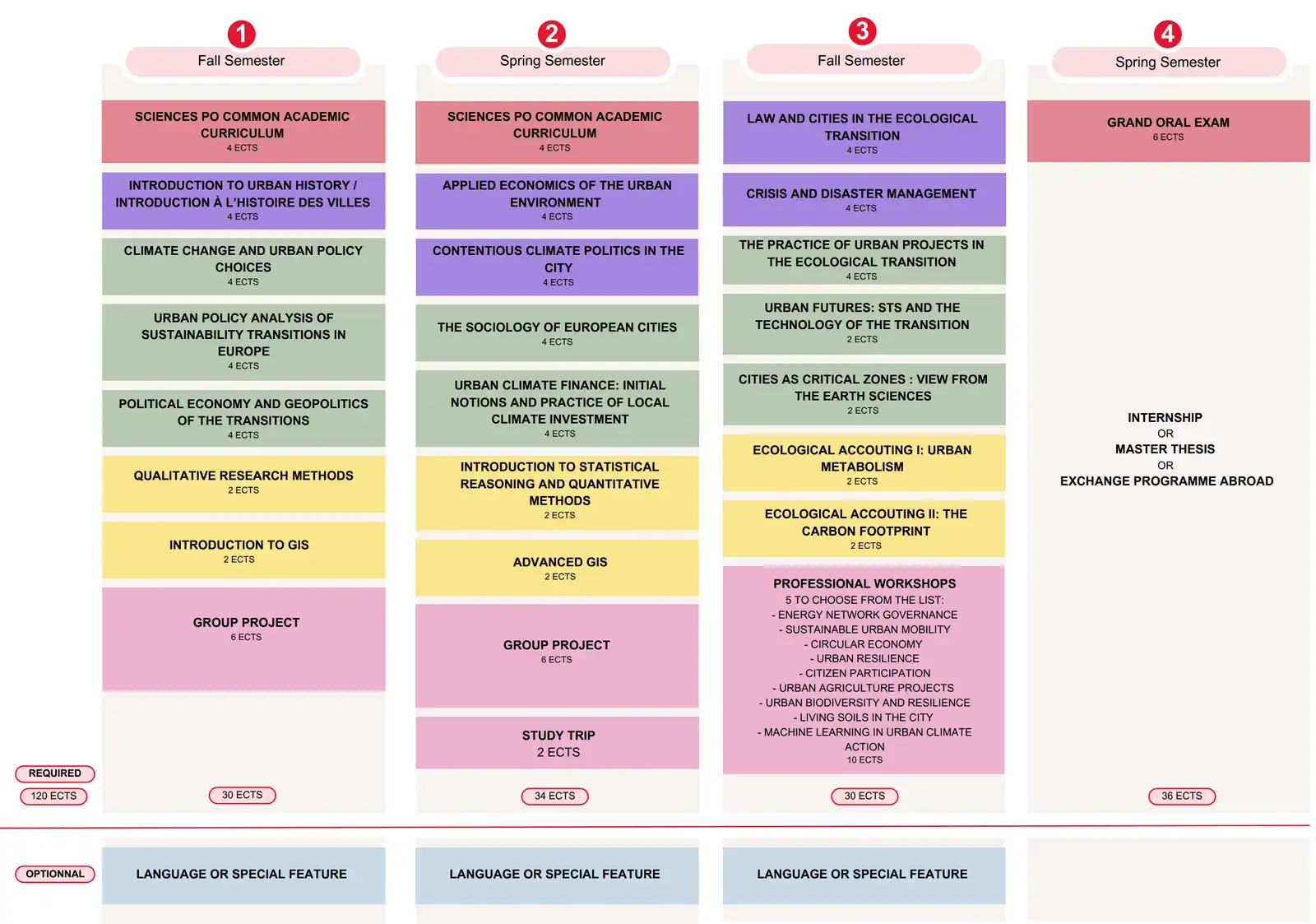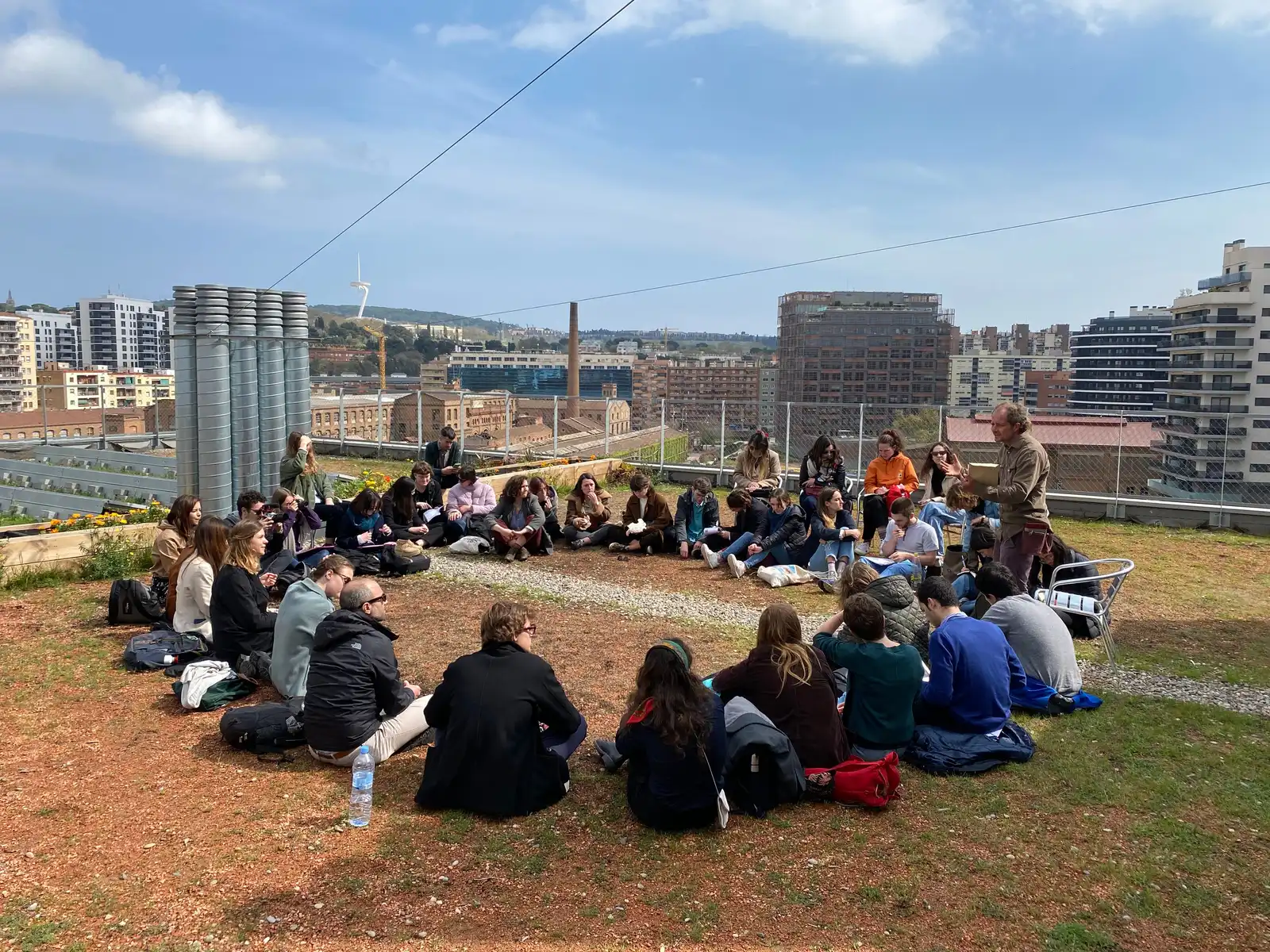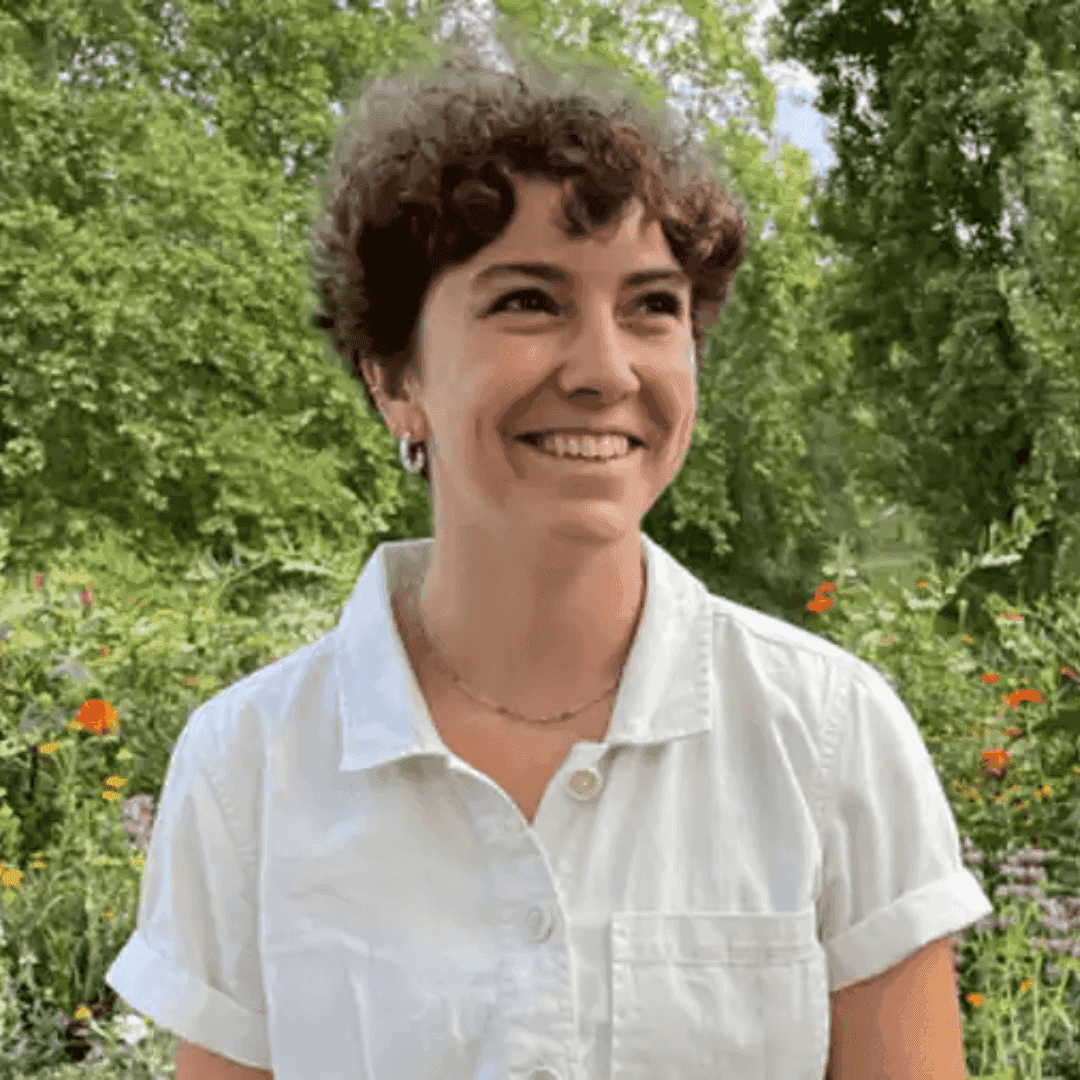
Home>Academics>Master Governing Ecological Transitions in Cities
Master Governing Ecological Transitions in Cities
Two-year Master's
Programme in English
120 ECTS minimum
Information Sessions: Masters

Discover all the Master's programs offered by our 7 professional Schools at Sciences Po and explore the wide range of specialisations available during our webinars dedicated to applicants.
The GETIC Master's degree (Governing Ecological Transition in Cities) is now open to apprentices from the start of the 2025 academic year.
LEADING THE ECOLOGICAL TRANSITION OF CITIES AND REGIONS
At the forefront of the climate and ecological crisis, cities must change everything, from mobility to housing, energy consumption to land use, to bring down CO2 emissions, adapt to a new climate, and foster biodiversity and human well-being. The master’s programme Governing Ecological Transitions in Cities trains the professionals leading these transformations with an interdisciplinary curriculum and a focus on urban environmental governance.
OBJECTIVES AND SKILLS
- Understanding the role of cities and regions in the climate and ecological crisis, map the actors and the social and ecological processes at play.
- Learning strategies, leverages, and policy tools to steer the ecological transition of cities in Europe and the global north.
- Mastering the concepts and methods of the urban social and ecological sciences: quantitative and qualitative research, spatial analysis, environmental accounting, and carbon budgeting.
- Acquiring professional skills through hands-on, learning-by-doing methods: professional networking, public speaking, project management, and project reporting.
Programme structure

First year
During the first semester, students follow courses devoted to understanding the basics of urban policy and governance and the challenges of the ecological transition in Europe and the world. During the second semester, students learn to analyze cities as social and ecological systems and acquire essential tools to jumpstart and lead the transition.
During these two semesters, students also follow methodological workshops: GIS, (geographic information systems), statistics, and qualitative research methods. Throughout the year, students work on a practical, professionally-focused group project: the group project.
Second year
During the third semester, students complete and consolidate their knowledge of strategies, tools, and leverages to steer the ecological transition of cities and regions. They also hone their professional and technical skills through hands-on workshops (material and energy flow analysis, carbon budgeting) and elective courses on real-life work experiences in different sectors of the transition (energy, mobility, biodiversity, urban agriculture, circular economy…).
The fourth semester is given over to a professional internship of at least 14 weeks and preferably six months, supervised by the programme’s senior faculty. Students write an internship report at the end of the semester.
The students can also spend this semester on exchange at a partner university.

Course outlines
Note: Curriculum plans evolve every year to address various needs and developments.
TRACK (OPTIONAL)
RESEARCH TRACK
Students who intend to do a PhD can begin a research track in sociology or political science since the second semester of the Master's programme.
Career for change
The Master in Governing Ecological Transitions in European Cities offers strong career prospects in a growing sector of the European labour market, at the crossroads of urban planning & governance and ecological transitions.
Our graduates go on to work in the private, public or non-profit sectors in integration, strategy, development, design or management roles with a common goal: to tackle the climate and ecological crisis by transforming our cities and regions.
Recruiters include:
- local authorities, in particular the environmental agencies of urban and regional councils
- design, engineering and consulting firms specialising in environmental and climate issues, including lobbying and assessment
- European institutions
- large service firms
- non-profit organisations
- research centres
- city networks
Find out more about career opportunities after a Master's degree at the Urban School:
Student testimonials
Contacts
Academic Director : Giacomo Parrinello
Academic Assistant (M1) ; support for international students : Antoine Tisserant
Academic Assistant (M2) : Béatrice Susana - Delpech
Academic Advisor : Cyriel Pelletier







